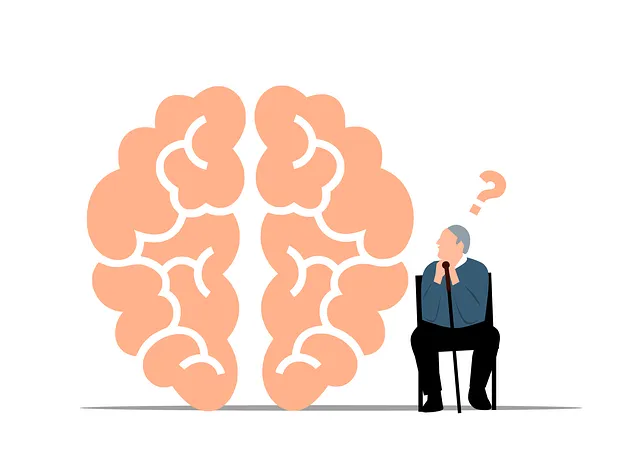Kaiser Permanente behavioral health services Centennial offers advanced self-assessment tools for mental wellness, utilizing evidence-based practices like Stress Reduction Techniques and Emotional Healing Processes. These tools aim to reduce stigma, promote early intervention, and foster proactive psychological well-being. With a focus on cultural sensitivity and user-friendliness, their holistic approach combines technology with compassionate care, setting a model for future initiatives. This game-changing strategy enhances mental healthcare accessibility, empowering individuals to track progress and seek support promptly, while training healthcare providers ensures inclusive, effective care across diverse communities.
Mental wellness self-assessment tools play a crucial role in identifying and addressing individual psychological needs. With growing awareness of mental health importance, such tools are becoming indispensable. This article explores the development of these assessments, highlighting a case study from Kaiser Permanente Behavioral Health Services Centennial. We delve into key considerations for effective tool creation and discuss their implementation impact, focusing on enhancing access to mental healthcare services. By examining this innovative approach, we aim to revolutionize mental wellness management.
- Understanding the Need for Mental Wellness Self-Assessment Tools
- Kaiser Permanente Behavioral Health Services Centennial: A Case Study
- Developing Effective Self-Assessment Tools: Key Considerations
- Implementation and Impact: Enhancing Mental Healthcare Access
Understanding the Need for Mental Wellness Self-Assessment Tools

In today’s fast-paced world, mental wellness is an increasingly important aspect of overall health and well-being. This is where self-assessment tools play a pivotal role, especially in initiatives like those offered by Kaiser Permanente behavioral health services Centennial. These tools empower individuals to proactively monitor and manage their mental health, enabling early intervention and prevention strategies. By utilizing evidence-based methods, such as Stress Reduction Techniques or exploring Emotional Healing Processes, self-assessment tools can help dispel the Mental Illness Stigma Reduction Efforts that often surround seeking support for one’s psychological well-being.
Kaiser Permanente Behavioral Health Services Centennial: A Case Study

Kaiser Permanente Behavioral Health Services Centennial stands as a beacon of hope and innovation in mental wellness assessment. This case study highlights their development of comprehensive tools that go beyond traditional methods. By integrating advanced technology and evidence-based practices, they’ve created a holistic approach to understanding and addressing individual needs. The organization’s commitment to stress management and overall mental wellness is evident through their diverse range of services, including a captivating Mental Wellness Podcast Series Production.
This strategic move not only educates the public but also offers crucial crisis intervention guidance, making mental health support more accessible and engaging. Kaiser Permanente’s Centennial location serves as a model for future initiatives, demonstrating that combining cutting-edge technology with compassionate care can significantly impact individuals’ lives.
Developing Effective Self-Assessment Tools: Key Considerations

Developing effective self-assessment tools for mental wellness is a multifaceted process that requires careful consideration. At Kaiser Permanente behavioral health services Centennial, we understand that these tools play a pivotal role in empowering individuals to take charge of their mental well-being. Key considerations include ensuring cultural sensitivity and adaptability to accommodate diverse populations. The tools should be user-friendly, providing clear instructions and reliable metrics to facilitate accurate self-assessment.
Integrating practices such as positive thinking and mindfulness meditation into the assessment process can offer valuable insights into an individual’s mental wellness state. By encouraging reflective practice, these tools enable users to identify areas for improvement, set achievable goals, and track progress over time. In light of these considerations, it is essential to design self-assessment tools that are both effective and accessible, fostering a holistic approach to mental wellness.
Implementation and Impact: Enhancing Mental Healthcare Access

The development of self-assessment tools for mental wellness is a significant step towards enhancing access to healthcare, particularly in areas like the Kaiser Permanente behavioral health services Centennial region. These tools can democratize mental healthcare by enabling individuals to proactively monitor their mental well-being and seek support early on. By integrating user-friendly platforms into routine healthcare practices, providers can identify potential issues before they escalate, leveraging resources more efficiently.
This approach aligns with Mind Over Matter Principles and Compassion Cultivation Practices, fostering a holistic environment where mental wellness is prioritized. Furthermore, training Healthcare Provider Cultural Competency can ensure these tools are inclusive and effectively utilized across diverse communities. Ultimately, this strategy has the potential to revolutionize mental healthcare accessibility, reflecting Kaiser Permanente’s commitment to comprehensive and compassionate patient care.
Mental wellness self-assessment tools play a pivotal role in enhancing access to mental healthcare, as exemplified by Kaiser Permanente Behavioral Health Services Centennial’s innovative approach. By focusing on key considerations such as accuracy, user-friendliness, and cultural sensitivity, these tools can empower individuals to take charge of their mental well-being. The successful implementation of self-assessment tools not only complements professional care but also contributes to a more inclusive and accessible mental healthcare landscape.






